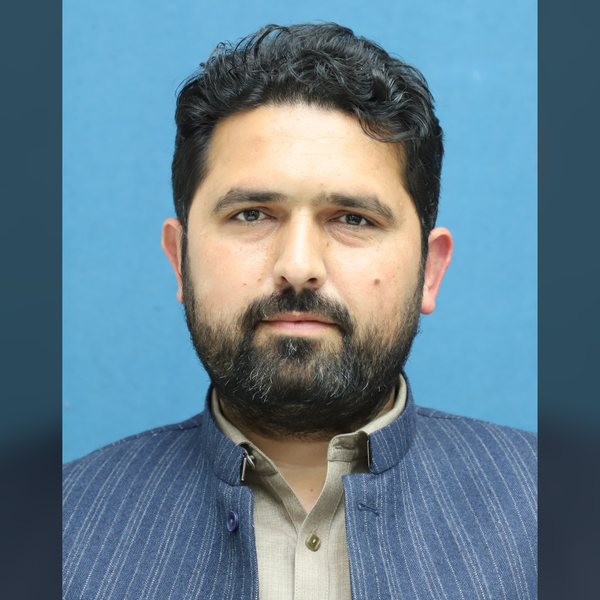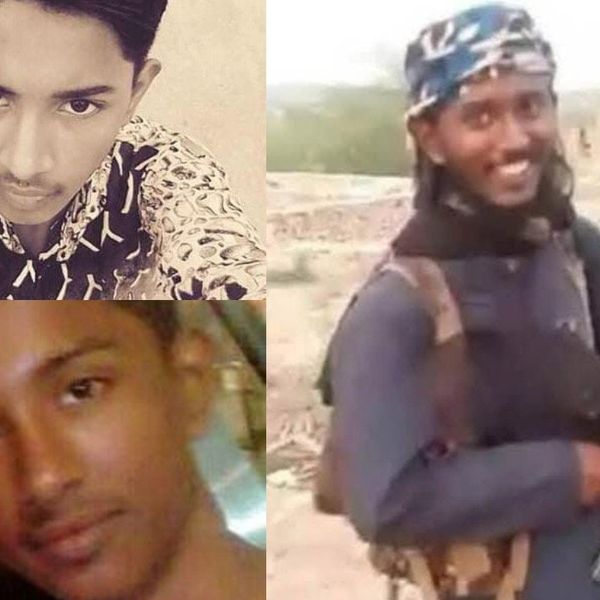The lost schoolboy at the heart of Pakistan’s enforced disappearances
He was just 13, says brother of lost schoolboy who was picked up 10 years ago
Kamran Ali
Correspondent Nukta
Kamran Ali, a seasoned journalist from Khyber Pakhtunkhwa, Pakistan, has a decade of experience covering terrorism, human rights, politics, economy, climate change, culture, and sports. With an MS in Media Studies, he has worked across print, radio, TV, and digital media, producing investigative reports and co-hosting shows that highlight critical issues.

More than 1,900 cases of missing persons are currently pending in Pakistan.
AI generated
Matching the stillness of the quiet corridors of the Peshawar High Court, Shahid Khan stood beside his aging father, haunted by the memories of the night that changed their lives forever.
Ten years ago, on a balmy September night, two dozen armed men stormed their house in Canal Town, a middle-class neighborhood in Pakistan's northeastern city of Peshawar.
They wore masks and did not produce a search warrant.
Khan, his brother and father were picked up and taken to an undisclosed location.
“They interrogated us for three days.
“Eventually, my father and I were released — but they kept Ehsanullah, who was just 13 at the time and a fifth-grade student.”
Years have passed, but the terror of that night still clings to him, following him everywhere even to the place where justice is meant to be found.
Khan said he has written several letters to the police and security agencies but has yet to receive a clear response.
“Each time we were assured he would return within two months, but nothing ever came out of it,” he said.
But Khan holds on to hope.
“In 2022, a list of missing persons from Khyber district surfaced, stating they would soon be handed over to the police and local administration. My brother’s name was on that list.”
What do the lawyers say?
Their lawyer, Hanif Afridi, told Nukta that despite repeated appeals to authorities, no concrete action has been taken. “Ehsanullah was reportedly accused of involvement with militants in Khyber district.
“The family does not demand his release but insists he be produced before a court of law and, if found guilty, punished accordingly.
“But enforced disappearance without any due process is a source of immense trauma and suffering for the family,” said Afridi.
More to it
These are not isolated incidents.
In February last year, four brothers - Abdul Waris, Nasir Khan, Usman Khan and Muhammad Zahir - along with their manager, Samandar, were also allegedly picked up from their home in Peshawar’s Hayatabad area.
Dozens of masked men in police uniforms allegedly picked these men up whose whereabouts remain unknown to date.
The families of the missing men have approached the Peshawar High Court filing habeas corpus petitions seeking their recovery.
In response, the court has directed both the provincial and federal governments to submit their replies.
More than 1,900 cases of missing persons are currently pending in Pakistan, according to information shared by a source within the Commission of Inquiry on Enforced Disappearances and seen by Nukta. Khyber Pakhtunkwa, a province troubled by years of terrorist attacks due to its proximity with Afghanistan, accounts for the highest number, with 1,286 cases.
The commission headed by a retired Supreme Court judge was established in 2011 amid uproar over missing persons.
The commission has since disposed of 80% cases. These include a majority who returned home, followed by those traced to detention centers and prisons, and some confirmed dead.
‘Worse than Guantanamo’
It all dates back to a controversial law: the Actions (in Aid of Civil Power) Regulation.
The law was introduced in 2011 but applied retrospectively from 2008 — to provide legal cover for the detention of civilians by security forces in Pakistan's terrorism-struck tribal areas, said Shabbir Hussain Gigyani, a Supreme Court advocate and activist for missing persons.
The regulation effectively legalized internment centers and the prolonged detention of individuals without trial in the Federally Administered Tribal Areas (FATA) and Provincially Administered Tribal Areas (PATA), he said.
Following the merger of FATA in 2018, Gigyani said, the provincial Khyber Pakhtunkhwa government passed the Continuation of Laws Act which allowed the regulation to persist — this time with even broader protections.
“Any action taken by law enforcement agencies in the discharge of their official duties,” he quoted from the law, “shall be deemed valid and shall not be called into question in any court of law.”
Gigyani claims that 26 internment centers, housing over 8,000 detainees, have been officially notified under the regulation, where conditions, he says, are deeply troubling.
“In many cases, the treatment of detainees is worse than what has been reported from Guantanamo Bay,” he said. “The absence of due process and prolonged incommunicado detention amount to a grave violation of fundamental rights.”
What's next?
The Peshawar High Court declared the regulation unconstitutional in 2019, allowing a writ petition filed by Gigyani.
The court ordered all internment centers to be converted into sub-jails.
However, the then-Pakistan Tehreek-e-Insaf-led government challenged the verdict in the Supreme Court of Pakistan, which resulted in a stay on the Peshawar High Court ruling.
Gigyani said that despite filing multiple applications, the top court has yet to fix a date for hearing the case — more than five years after the stay was granted in 2019.
KP government reviewing ‘black laws’
KP Law Minister Aftab Alam said that the provincial government intends to address the issue. “All legal shortcomings will be reviewed,” Alam said. “We are committed to revising all black laws.”
Meena Khan Afridi, another provincial minister, told Nukta the issue of missing persons has been raised by the KP government at various federal forums. “The provincial government is actively pursuing this matter,” he said. “We will not compromise on this issue.”
For families like Khan’s, the wait for answers has stretched into years — but their search for justice refuses to disappear.










Comments
See what people are discussing